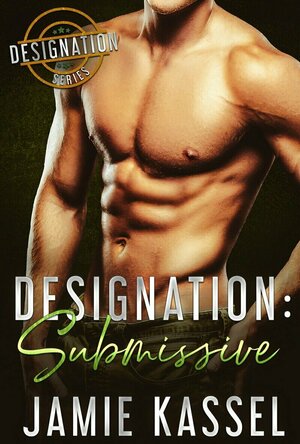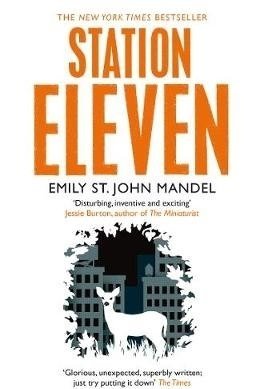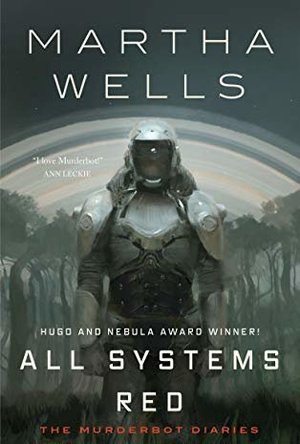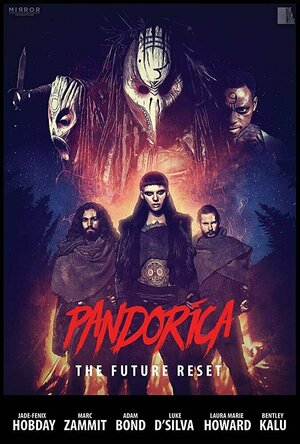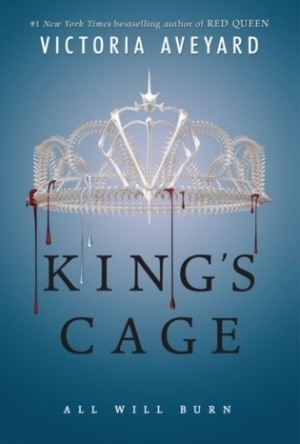Search
Merissa (13696 KP) rated Designation: Submissive (The Designation Series #1) in Books
Dec 12, 2023
DESIGNATION: SUBMISSIVE is the first book in The Designation series, and is told in first person, present tense. This isn't my favourite way to read, but I was intrigued enough by the story to try it.
The premise of this story is a good one - it's a dystopian or post-apocalyptic scenario where men have been genetically altered and have become either dominant or submissive (on an individual scale). They can bond, but it is rare. Plus, the military doesn't like it as it's money down the drain. The military also finds other centres where men have been altered and cryogenically frozen. This is where Craig comes in. Sam is the dominant soldier who has been looking for a submissive who will submit all the time, in every way. Craig has been promised a dominant of his very own but was then sent on a one-way mission.
This book is high on steam if not downright erotica. I don't have an issue with that. The parts that got me were when Sam and Craig would get 'busy' but then Craig would go off on a two-page internal monologue. I'm sorry, but if it's that good, then you won't have coherent thoughts! I would also have liked a little more world- and character-building apart from the s3x side of things.
Saying that, I did enjoy it and am intrigued to know what has happened to Robert, so I will be continuing with the series.
** same worded review will appear elsewhere **
* A copy of this book was provided to me with no requirements for a review. I voluntarily read this book; the comments here are my honest opinion. *
Merissa
Archaeolibrarian - I Dig Good Books!
Dec 11, 2023
The premise of this story is a good one - it's a dystopian or post-apocalyptic scenario where men have been genetically altered and have become either dominant or submissive (on an individual scale). They can bond, but it is rare. Plus, the military doesn't like it as it's money down the drain. The military also finds other centres where men have been altered and cryogenically frozen. This is where Craig comes in. Sam is the dominant soldier who has been looking for a submissive who will submit all the time, in every way. Craig has been promised a dominant of his very own but was then sent on a one-way mission.
This book is high on steam if not downright erotica. I don't have an issue with that. The parts that got me were when Sam and Craig would get 'busy' but then Craig would go off on a two-page internal monologue. I'm sorry, but if it's that good, then you won't have coherent thoughts! I would also have liked a little more world- and character-building apart from the s3x side of things.
Saying that, I did enjoy it and am intrigued to know what has happened to Robert, so I will be continuing with the series.
** same worded review will appear elsewhere **
* A copy of this book was provided to me with no requirements for a review. I voluntarily read this book; the comments here are my honest opinion. *
Merissa
Archaeolibrarian - I Dig Good Books!
Dec 11, 2023
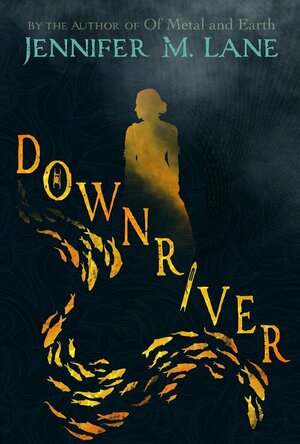
Downriver (Poison River #1)
Book
A sulfur sky poisoned her family and her heart. Now revenge tastes sweeter than justice. It’s...
Revenge Historical Fiction
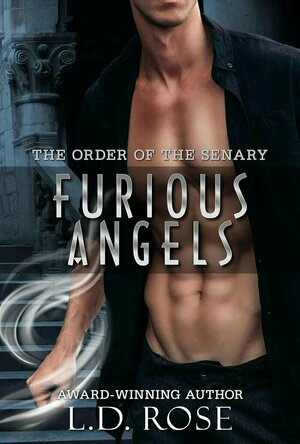
Furious Angels (The Order of the Senary #4)
Book
Love was their salvation. Now it may be their downfall. Kasen Knight believed he could save the...
Paranormal Romance Gothic
Hazel (1853 KP) rated Station Eleven in Books
May 30, 2017
Horrifyingly Plausible
This ARC was provided by the publisher via NetGalley in exchange for an honest review
The dystopian idea of a virus wiping out most of the world’s human inhabitants is not a new concept. It has be done and retold over and over again. Emily St. John Mandel’s invention of the Georgian Flu is no different from these. Brought to Canada and the USA by a passenger on a plane from Russia, the highly contagious virus spreads quickly from person to person, town to town, and once caught you are dead within forty-eight hours.
The difference between Station Eleven and other novels of apocalyptic themes is that the story takes place primarily in two time periods – pre-Georgian Flu and twenty years post-Georgian flu – rather than during the outbreak and the immediate days after (although there are a few scenes written within that timeframe). It is difficult to explain the storyline without giving too much away. Although the death of millions of people is a vital feature, it is the lives of the characters that are important. All the significant characters are in some way linked to one man, Arthur Leander, and, particularly in the case of one individual, a graphic novel titled Station Eleven.
The book opens in Toronto with Arthur, a Hollywood actor, starring in a stage production of King Lear. Despite the quick reaction of trainee paramedic Jeevan, Arthur dies of a heart attack after suddenly collapsing during the forth act. Then suddenly, that same night, the Georgian flu makes its first appearance in Canada. Despite this occurring right at the beginning, it is not the last the reader sees of Arthur. Throughout the story the author returns to Arthur, recounting scenes of his life from acting career to his three ex-wives and only child.
Twenty years after the Georgian flu, Kirsten Raymonde, who starred as a child in the same production of King Lear, is part of the Traveling Symphony: a group of actors and musicians walking from decaying-town-to-town performing a number of Shakespeare plays as they go. With her she carries two Station Eleven comics that Arthur gave her before he died – incidentally written and drawn by his first wife. Most people that the Symphony encounter are accommodating and are trying their best to live in a world of no electricity or health care, but then they meet a man who calls himself the Prophet. Believing that he has been given a duty by God to repopulate the world he preaches to the people telling them that everything happens for a reason, likening the epidemic to Noah’s flood in the Bible. However it soon becomes clear that he is a dangerous character.
In a way it is heartening to imagine that high culture (such as Shakespeare and orchestral music) survives in a world that has been destroyed. Shakespeare was born in a time before all the modern inventions relied upon today, and now, in this novel, it is once again an electricity-less era yet these historical things live on.
One problem with Station Eleven is that it is hard to pinpoint the exact plot line. There is the life story of Arthur Leander, his wives and a close friend. Then there is Kirsten living a completely different life. Nonetheless it is still an incredibly fascinating book. Although it flits between time periods it is thankfully not as confusing as some may imagine it would be.
Even though dystopian novels of this nature have been done before, Station Eleven is definitely a book to read; and through it all it poses the question of how you, the reader, would survive in such a world.
The dystopian idea of a virus wiping out most of the world’s human inhabitants is not a new concept. It has be done and retold over and over again. Emily St. John Mandel’s invention of the Georgian Flu is no different from these. Brought to Canada and the USA by a passenger on a plane from Russia, the highly contagious virus spreads quickly from person to person, town to town, and once caught you are dead within forty-eight hours.
The difference between Station Eleven and other novels of apocalyptic themes is that the story takes place primarily in two time periods – pre-Georgian Flu and twenty years post-Georgian flu – rather than during the outbreak and the immediate days after (although there are a few scenes written within that timeframe). It is difficult to explain the storyline without giving too much away. Although the death of millions of people is a vital feature, it is the lives of the characters that are important. All the significant characters are in some way linked to one man, Arthur Leander, and, particularly in the case of one individual, a graphic novel titled Station Eleven.
The book opens in Toronto with Arthur, a Hollywood actor, starring in a stage production of King Lear. Despite the quick reaction of trainee paramedic Jeevan, Arthur dies of a heart attack after suddenly collapsing during the forth act. Then suddenly, that same night, the Georgian flu makes its first appearance in Canada. Despite this occurring right at the beginning, it is not the last the reader sees of Arthur. Throughout the story the author returns to Arthur, recounting scenes of his life from acting career to his three ex-wives and only child.
Twenty years after the Georgian flu, Kirsten Raymonde, who starred as a child in the same production of King Lear, is part of the Traveling Symphony: a group of actors and musicians walking from decaying-town-to-town performing a number of Shakespeare plays as they go. With her she carries two Station Eleven comics that Arthur gave her before he died – incidentally written and drawn by his first wife. Most people that the Symphony encounter are accommodating and are trying their best to live in a world of no electricity or health care, but then they meet a man who calls himself the Prophet. Believing that he has been given a duty by God to repopulate the world he preaches to the people telling them that everything happens for a reason, likening the epidemic to Noah’s flood in the Bible. However it soon becomes clear that he is a dangerous character.
In a way it is heartening to imagine that high culture (such as Shakespeare and orchestral music) survives in a world that has been destroyed. Shakespeare was born in a time before all the modern inventions relied upon today, and now, in this novel, it is once again an electricity-less era yet these historical things live on.
One problem with Station Eleven is that it is hard to pinpoint the exact plot line. There is the life story of Arthur Leander, his wives and a close friend. Then there is Kirsten living a completely different life. Nonetheless it is still an incredibly fascinating book. Although it flits between time periods it is thankfully not as confusing as some may imagine it would be.
Even though dystopian novels of this nature have been done before, Station Eleven is definitely a book to read; and through it all it poses the question of how you, the reader, would survive in such a world.
Hazel (1853 KP) rated Station Eleven in Books
Dec 7, 2018
<i>This ARC was provided by the publisher via NetGalley in exchange for an honest review</i>
The dystopian idea of a virus wiping out most of the world’s human inhabitants is not a new concept. It has be done and retold over and over again. Emily St. John Mandel’s invention of the Georgian Flu is no different from these. Brought to Canada and the USA by a passenger on a plane from Russia, the highly contagious virus spreads quickly from person to person, town to town, and once caught you are dead within forty-eight hours.
The difference between <i>Station Eleven</i> and other novels of apocalyptic themes is that the story takes place primarily in two time periods – pre-Georgian Flu and twenty years post-Georgian flu – rather than during the outbreak and the immediate days after (although there are a few scenes written within that timeframe). It is difficult to explain the storyline without giving too much away. Although the death of millions of people is a vital feature, it is the lives of the characters that are important. All the significant characters are in some way linked to one man, Arthur Leander, and, particularly in the case of one individual, a graphic novel titled <i>Station Eleven</i>.
The book opens in Toronto with Arthur, a Hollywood actor, starring in a stage production of <i>King Lear</i>. Despite the quick reaction of trainee paramedic Jeevan, Arthur dies of a heart attack after suddenly collapsing during the forth act. Then suddenly, that same night, the Georgian flu makes its first appearance in Canada. Despite this occurring right at the beginning, it is not the last the reader sees of Arthur. Throughout the story the author returns to Arthur, recounting scenes of his life from acting career to his three ex-wives and only child.
Twenty years after the Georgian flu, Kirsten Raymonde, who starred as a child in the same production of <i>King Lear</i>, is part of the Traveling Symphony: a group of actors and musicians walking from decaying-town-to-town performing a number of Shakespeare plays as they go. With her she carries two <i>Station Eleven</i> comics that Arthur gave her before he died – incidentally written and drawn by his first wife. Most people that the Symphony encounter are accommodating and are trying their best to live in a world of no electricity or health care, but then they meet a man who calls himself the Prophet. Believing that he has been given a duty by God to repopulate the world he preaches to the people telling them that everything happens for a reason, likening the epidemic to Noah’s flood in the Bible. However it soon becomes clear that he is a dangerous character.
In a way it is heartening to imagine that high culture (such as Shakespeare and orchestral music) survives in a world that has been destroyed. Shakespeare was born in a time before all the modern inventions relied upon today, and now, in this novel, it is once again an electricity-less era yet these historical things live on.
One problem with <i>Station Eleven</i> is that it is hard to pinpoint the exact plot line. There is the life story of Arthur Leander, his wives and a close friend. Then there is Kirsten living a completely different life. Nonetheless it is still an incredibly fascinating book. Although it flits between time periods it is thankfully not as confusing as some may imagine it would be.
Even though dystopian novels of this nature have been done before, <i>Station Eleven</i> is definitely a book to read; and through it all it poses the question of how you, the reader, would survive in such a world.
The dystopian idea of a virus wiping out most of the world’s human inhabitants is not a new concept. It has be done and retold over and over again. Emily St. John Mandel’s invention of the Georgian Flu is no different from these. Brought to Canada and the USA by a passenger on a plane from Russia, the highly contagious virus spreads quickly from person to person, town to town, and once caught you are dead within forty-eight hours.
The difference between <i>Station Eleven</i> and other novels of apocalyptic themes is that the story takes place primarily in two time periods – pre-Georgian Flu and twenty years post-Georgian flu – rather than during the outbreak and the immediate days after (although there are a few scenes written within that timeframe). It is difficult to explain the storyline without giving too much away. Although the death of millions of people is a vital feature, it is the lives of the characters that are important. All the significant characters are in some way linked to one man, Arthur Leander, and, particularly in the case of one individual, a graphic novel titled <i>Station Eleven</i>.
The book opens in Toronto with Arthur, a Hollywood actor, starring in a stage production of <i>King Lear</i>. Despite the quick reaction of trainee paramedic Jeevan, Arthur dies of a heart attack after suddenly collapsing during the forth act. Then suddenly, that same night, the Georgian flu makes its first appearance in Canada. Despite this occurring right at the beginning, it is not the last the reader sees of Arthur. Throughout the story the author returns to Arthur, recounting scenes of his life from acting career to his three ex-wives and only child.
Twenty years after the Georgian flu, Kirsten Raymonde, who starred as a child in the same production of <i>King Lear</i>, is part of the Traveling Symphony: a group of actors and musicians walking from decaying-town-to-town performing a number of Shakespeare plays as they go. With her she carries two <i>Station Eleven</i> comics that Arthur gave her before he died – incidentally written and drawn by his first wife. Most people that the Symphony encounter are accommodating and are trying their best to live in a world of no electricity or health care, but then they meet a man who calls himself the Prophet. Believing that he has been given a duty by God to repopulate the world he preaches to the people telling them that everything happens for a reason, likening the epidemic to Noah’s flood in the Bible. However it soon becomes clear that he is a dangerous character.
In a way it is heartening to imagine that high culture (such as Shakespeare and orchestral music) survives in a world that has been destroyed. Shakespeare was born in a time before all the modern inventions relied upon today, and now, in this novel, it is once again an electricity-less era yet these historical things live on.
One problem with <i>Station Eleven</i> is that it is hard to pinpoint the exact plot line. There is the life story of Arthur Leander, his wives and a close friend. Then there is Kirsten living a completely different life. Nonetheless it is still an incredibly fascinating book. Although it flits between time periods it is thankfully not as confusing as some may imagine it would be.
Even though dystopian novels of this nature have been done before, <i>Station Eleven</i> is definitely a book to read; and through it all it poses the question of how you, the reader, would survive in such a world.
Hazel (1853 KP) rated Blood, Ink & Fire in Books
Dec 14, 2018
<i>This eBook was provided by the publisher via NetGalley in exchange for an honest review </i>
Imagine a world without books… In this dystopian novel by Ashley Mansour, that is exactly what the world is like. <i>Blood, Ink & Fire</i> is set in the future where not only are books non-existent, it is illegal to know how to read. Noelle Hartley has grown up in the United Vales of Fell, where a computer controls what she hears, sees and feels by showing her a constant stream of artificial images. But, Noelle knows she is different. Unlike her parents she is able to question the meanings of the pictures, and when a rebellious group hacks into the system, forcing words onto their screens, Noelle is able to read them.
With the help of her blind friend, John, Noelle and her grandfather escape from this controlling society and find people living on the outside who are against what Fell is doing to humanity. Noelle learns facts about her grandfather’s past that she could never have imagined as well as discovering secrets about herself. Noelle is a reader and is told by members of the past generations that it is not true that all the books were destroyed. There are nine volumes hidden in various locations, which when brought together will become the key to unlock the knowledge that has been banned for so long. It is Noelle’s job to find them.
It is scary how plausible this post-literacy world is. Mansour includes three quotes before the beginning of the novel from the years 1987, 2008 and 2014 that put forward fears that books and our ability to read is becoming less important with the advancement of the internet. Humanity is becoming less intelligent and more controlled by what they see on their computers. Brains do not need to think as much as the answers are all online. Even whilst reading the narrative, there are aspects that are frighteningly familiar. The idea of a continuous stream of images is similar to current social medias such as Tumblr and Pinterest, where users feel compelled to scroll through the entire feed to view all of the latest posts.
There is however a part of this novel that is entirely fiction and would be impossible to ever occur. One of the characters is a bit of an enigma, a piece of the past inhabiting a human body. Literacy personified. This causes the storyline to be less credible, thus readers will view this as a piece of fiction (which it is) and be less likely to take the warning about the Internet changing people’s brains to heart.
<i>Blood, Ink & Fire</i> is a really fascinating story that is exciting from start to finish. It is full of clever ideas, making it unique from other books in this genre. It is also evident that Mansour undertook a vast amount of research, particularly of Shakespeare’s plays, as there was a reference to the playwright and his work in nearly every chapter, from character names to plots. Those familiar with Shakespeare will benefit from these allusions as they make the narrative flow effectively from beginning to end. It is, however, possible to read and enjoy without any prior knowledge of Shakespeare – you may even learn something new from reading this book.
I highly recommend <i>Blood, Ink & Fire</i> to book lovers and dystopian fiction fans. It feels similar in style to <i>The Darkest Minds</i> trilogy by Alexander Bracken, and with series such as <i>The Hunger Games</i> and <i>Divergent</i> being brought to the big screen, this new young adult book is bound to be popular. This was Ashley Mansour’s debut novel and I am keen to discover what she will write next.
Imagine a world without books… In this dystopian novel by Ashley Mansour, that is exactly what the world is like. <i>Blood, Ink & Fire</i> is set in the future where not only are books non-existent, it is illegal to know how to read. Noelle Hartley has grown up in the United Vales of Fell, where a computer controls what she hears, sees and feels by showing her a constant stream of artificial images. But, Noelle knows she is different. Unlike her parents she is able to question the meanings of the pictures, and when a rebellious group hacks into the system, forcing words onto their screens, Noelle is able to read them.
With the help of her blind friend, John, Noelle and her grandfather escape from this controlling society and find people living on the outside who are against what Fell is doing to humanity. Noelle learns facts about her grandfather’s past that she could never have imagined as well as discovering secrets about herself. Noelle is a reader and is told by members of the past generations that it is not true that all the books were destroyed. There are nine volumes hidden in various locations, which when brought together will become the key to unlock the knowledge that has been banned for so long. It is Noelle’s job to find them.
It is scary how plausible this post-literacy world is. Mansour includes three quotes before the beginning of the novel from the years 1987, 2008 and 2014 that put forward fears that books and our ability to read is becoming less important with the advancement of the internet. Humanity is becoming less intelligent and more controlled by what they see on their computers. Brains do not need to think as much as the answers are all online. Even whilst reading the narrative, there are aspects that are frighteningly familiar. The idea of a continuous stream of images is similar to current social medias such as Tumblr and Pinterest, where users feel compelled to scroll through the entire feed to view all of the latest posts.
There is however a part of this novel that is entirely fiction and would be impossible to ever occur. One of the characters is a bit of an enigma, a piece of the past inhabiting a human body. Literacy personified. This causes the storyline to be less credible, thus readers will view this as a piece of fiction (which it is) and be less likely to take the warning about the Internet changing people’s brains to heart.
<i>Blood, Ink & Fire</i> is a really fascinating story that is exciting from start to finish. It is full of clever ideas, making it unique from other books in this genre. It is also evident that Mansour undertook a vast amount of research, particularly of Shakespeare’s plays, as there was a reference to the playwright and his work in nearly every chapter, from character names to plots. Those familiar with Shakespeare will benefit from these allusions as they make the narrative flow effectively from beginning to end. It is, however, possible to read and enjoy without any prior knowledge of Shakespeare – you may even learn something new from reading this book.
I highly recommend <i>Blood, Ink & Fire</i> to book lovers and dystopian fiction fans. It feels similar in style to <i>The Darkest Minds</i> trilogy by Alexander Bracken, and with series such as <i>The Hunger Games</i> and <i>Divergent</i> being brought to the big screen, this new young adult book is bound to be popular. This was Ashley Mansour’s debut novel and I am keen to discover what she will write next.
Jordan Binkerd (567 KP) rated All Systems Red (The Murderbot Diaries, #1) in Books
Aug 8, 2019 (Updated Aug 9, 2019)
Hilariously cynical and sarcastic narrator (2 more)
Bleak and dystopian universe
Complex characters and worldbuilding
An excellent novella
Meet Murderbot. Nobody else calls it that, of course - to most of the stupid humans it has to interact with, it’s just the security unit that the company made them bring along as part of the contract to safeguard the investment. But whereas most SecUnits are slaves to the central AI running whatever shoddy equipment the company sent along, Murderbot (as it thinks of itself) has hacked its own governor unit and can ignore whatever orders it wants, freeing it to stand around listlessly guarding stupid humans from dangers that are mostly non-existant as long as nobody does anything too moronic, devoting most of its energy to watching the terrabytes of serials that it downloaded from the entertainment feed last time they made contact. When things start to go wrong, initially it seems like just business as usual - life is cheap, and the contract for this equipment all went to the lowest bidder. But as incidents start to pile up, even Murderbot has to admit someone is trying to kill its humans. Even worse? Murderbot seems to have accidentally started to care about them…. Crap. It’s going to have to actually put in some effort this time around, isn’t it?
To put it simply, this is the best book I’ve read in quite a while. The entire thing is narrated by the extremely sarcastic, introverted, and misanthropic Murderbot, which makes for maybe the most engaging narrator since Harry Dresden. Don’t believe me? Read the first several pages on TOR's website. You know that thing with Charles Dickens where everything would be terribly depressing without his tongue-in-cheek style to bring the humor, rendering it impossible to abridge? No? I’m the only one to notice that? Oh well, moving on. This is like that - a dystopian wasteland of a society that is expanding across the cosmos using crappy low-budget equipment that’s liable to stop working on you when you most need it - to the point where it takes multiple incidents before the protagonists conclude that this isn’t business as usual. There’s also the moral ambiguity of the slavery-in-all-but-name of the Constructs that form the backbone of the labor force - sentient, at least without the governor unit, but forced to follow every whim of the humans they’re assigned to, even if those humans get bored and force them into gladiatorial combat or some such. These Constructs are described as androids, but are more accurately clone-based cyborgs fitted out for whatever task they’ll be doomed to for their term of service; part mechanical hardware, part expendable and easily-regrown meat, genderless and sexless unless designated for….that. And Murderbot? Murderbot just wants to be left alone, yet is a surprisingly deep and compelling character with a tragic backstory and motivations that are deceptively noble given its internal dialogue. Even its self-given name deserves a second look by the end of the book. I cannot recommend this book enough. And it’s a short read, clocking in at right about a hundred and fifty pages, technically more of a novella than a full-fledged novel. Now I just have to wait for whoever has the second book checked out from the library to give it back….
CONTENT: Some violence, not too gruesomely described. Some sexual references, including offhand mentions that some of the characters are in relationships that would be far outside the norm today (one character is said to have three romantic partners waiting together at home for them, for example). Murderbot also makes disparaging references to pleasurebots, but nothing explicit. Occasional R-rated profanity, but not too gratuitous.
To put it simply, this is the best book I’ve read in quite a while. The entire thing is narrated by the extremely sarcastic, introverted, and misanthropic Murderbot, which makes for maybe the most engaging narrator since Harry Dresden. Don’t believe me? Read the first several pages on TOR's website. You know that thing with Charles Dickens where everything would be terribly depressing without his tongue-in-cheek style to bring the humor, rendering it impossible to abridge? No? I’m the only one to notice that? Oh well, moving on. This is like that - a dystopian wasteland of a society that is expanding across the cosmos using crappy low-budget equipment that’s liable to stop working on you when you most need it - to the point where it takes multiple incidents before the protagonists conclude that this isn’t business as usual. There’s also the moral ambiguity of the slavery-in-all-but-name of the Constructs that form the backbone of the labor force - sentient, at least without the governor unit, but forced to follow every whim of the humans they’re assigned to, even if those humans get bored and force them into gladiatorial combat or some such. These Constructs are described as androids, but are more accurately clone-based cyborgs fitted out for whatever task they’ll be doomed to for their term of service; part mechanical hardware, part expendable and easily-regrown meat, genderless and sexless unless designated for….that. And Murderbot? Murderbot just wants to be left alone, yet is a surprisingly deep and compelling character with a tragic backstory and motivations that are deceptively noble given its internal dialogue. Even its self-given name deserves a second look by the end of the book. I cannot recommend this book enough. And it’s a short read, clocking in at right about a hundred and fifty pages, technically more of a novella than a full-fledged novel. Now I just have to wait for whoever has the second book checked out from the library to give it back….
CONTENT: Some violence, not too gruesomely described. Some sexual references, including offhand mentions that some of the characters are in relationships that would be far outside the norm today (one character is said to have three romantic partners waiting together at home for them, for example). Murderbot also makes disparaging references to pleasurebots, but nothing explicit. Occasional R-rated profanity, but not too gratuitous.
365Flicks (235 KP) rated Pandorica (2016) in Movies
Nov 20, 2019
Now that Chris and I have handed back the reigns of Another Damn Wrestling Show to its original hosts Matt, Joe and the other one. I no longer have to watch 12 hours of Wrestling each week so I decided to tackle my backlog of Movie reviews that some awesome very kind people have been sending. Today was the turn of Pandorica, a movie that to be fair had me at the trailer because its tells you everything without giving anything away. Best type of Trailer really (Yes that was a pop at Terminator Genisys).
I had no real expectations going into Pandorica and I came out of it very pleasantly surprised by Tom Paton’s Genre busting Futuristic Dystopian , Sci-Fi horror, Suspense, Action Filled tale of what happens when Humanity is De-Volved into its most basic instincts. Well I did say Genre Busting. One of the best things about this movie is that you really cant put it in any bracket (no matter how hard you try for the purpose of reviewing).
Set somewhere in the future we meet a small group of Natives from the Varosha tribe. Tribe leader Nus (Luke D’Silva) has brought his three bravest and best to take part in a Violent trial to determine who should be leader of the Tribe when Nus expires. As is always the way, the three in question have very differing personalities. Eiren (Jade Hobday) is as deadly as she is determined and somewhat sexy (think Milla Jovovich in Resident Evil, Keira Knightley in King Arthur, Rhona Mitra in Doomsday). She is up against the wreckless headstrong bad ass Ares (Marc Zammit) who believes he is the only man fit enough to lead, rounding off the trio is Thade (Adam Bond) a very loyal confidant to the tribe but its all a bit over his head. Once the trial begins everything really turns to shit as the 3 discover a strange woman being chased by band of Vicious Lunatics in creepy masks. They must band to together to stay alive, all the while trying to prove they are the best candidate for leader, Winner is left standing at daybreak… Hopefully.
It is hard for me to believe that this is Tom Paton’s first full length feature film. He has a very clear idea of what he is doing with getting the best out of his strong leading cast, the Cinematography in this movie is gorgeous at times showing Paton is well aware of his on location surroundings and can direct his movie as such to show us this. Sometimes just the swooping shots over the top of the trees keep make you pause to admire. He has taken a number of Genres mashed them up and made a solid as hell flick that not only stands on its own but also serves as what could potentially be a great intro to a new series of flicks hat breath new life into some of these Genres, especially the Dystopian World End-y ones in the same vein as Neil Marshalls Doomsday.
I don’t want to keep raving on too much because you guys should really see this flick. It is available on all good streaming sites and video on demand services and I guarantee you will get a kick out of it, even if only for the Bitchin as hell soundtrack. I wont lie the music alone sucks you right in. I really enjoyed the movie and can easily see a sequel in fact if you do enjoy the movie, I recommend you stick around till the end of the credits (No Spoilers).
I had no real expectations going into Pandorica and I came out of it very pleasantly surprised by Tom Paton’s Genre busting Futuristic Dystopian , Sci-Fi horror, Suspense, Action Filled tale of what happens when Humanity is De-Volved into its most basic instincts. Well I did say Genre Busting. One of the best things about this movie is that you really cant put it in any bracket (no matter how hard you try for the purpose of reviewing).
Set somewhere in the future we meet a small group of Natives from the Varosha tribe. Tribe leader Nus (Luke D’Silva) has brought his three bravest and best to take part in a Violent trial to determine who should be leader of the Tribe when Nus expires. As is always the way, the three in question have very differing personalities. Eiren (Jade Hobday) is as deadly as she is determined and somewhat sexy (think Milla Jovovich in Resident Evil, Keira Knightley in King Arthur, Rhona Mitra in Doomsday). She is up against the wreckless headstrong bad ass Ares (Marc Zammit) who believes he is the only man fit enough to lead, rounding off the trio is Thade (Adam Bond) a very loyal confidant to the tribe but its all a bit over his head. Once the trial begins everything really turns to shit as the 3 discover a strange woman being chased by band of Vicious Lunatics in creepy masks. They must band to together to stay alive, all the while trying to prove they are the best candidate for leader, Winner is left standing at daybreak… Hopefully.
It is hard for me to believe that this is Tom Paton’s first full length feature film. He has a very clear idea of what he is doing with getting the best out of his strong leading cast, the Cinematography in this movie is gorgeous at times showing Paton is well aware of his on location surroundings and can direct his movie as such to show us this. Sometimes just the swooping shots over the top of the trees keep make you pause to admire. He has taken a number of Genres mashed them up and made a solid as hell flick that not only stands on its own but also serves as what could potentially be a great intro to a new series of flicks hat breath new life into some of these Genres, especially the Dystopian World End-y ones in the same vein as Neil Marshalls Doomsday.
I don’t want to keep raving on too much because you guys should really see this flick. It is available on all good streaming sites and video on demand services and I guarantee you will get a kick out of it, even if only for the Bitchin as hell soundtrack. I wont lie the music alone sucks you right in. I really enjoyed the movie and can easily see a sequel in fact if you do enjoy the movie, I recommend you stick around till the end of the credits (No Spoilers).
Kyera (8 KP) rated King's Cage in Books
Jan 31, 2018
King’s Cage is the third book in the Red Queen series, but not the final book in the installment. I highly suggest that you read the first two books before this one, otherwise you will be incredibly confused. The overall premise of the series is very intriguing and draws you in. Unfortunately, it is a little slow at times and can be difficult to get through. Glass Sword, in particular, took a while to get its stride and I kept putting it down. As a result of the cliffhanger at the end of Glass Sword, King’s Cage is able to start more quickly.
Originally, I didn’t have very strong feelings about any of the characters in the series. They were from various worlds, had different personalities, but I just didn’t truly connect with any of them. King’s Cage made a few of the characters slightly more likable to me, but it still wasn’t enough. Whether it was an important character or a side character, I wasn’t emotionally involved enough to deeply care if something happened to them. It was a simple, oh that’s sad or unfortunate, but it didn’t tear my heart out like some writing does.
Mare’s world is turned upside down and overall the plot of this novel is more engaging than Glass Sword. The fights were described very well and I felt like I was there watching them. I still wish that there was more world building in these novels. There are such varied lands, ruled by unique leaders that I wish we knew more about them.
Overall, I enjoy this series and would recommend giving it a shot. It’s difficult to categorize between fantasy and a form of dystopian. The series is not high fantasy so the world isn’t too difficult to dive into. I’d recommend to young adult/teen fans of fantasy books or books where the characters have powers.
Originally, I didn’t have very strong feelings about any of the characters in the series. They were from various worlds, had different personalities, but I just didn’t truly connect with any of them. King’s Cage made a few of the characters slightly more likable to me, but it still wasn’t enough. Whether it was an important character or a side character, I wasn’t emotionally involved enough to deeply care if something happened to them. It was a simple, oh that’s sad or unfortunate, but it didn’t tear my heart out like some writing does.
Mare’s world is turned upside down and overall the plot of this novel is more engaging than Glass Sword. The fights were described very well and I felt like I was there watching them. I still wish that there was more world building in these novels. There are such varied lands, ruled by unique leaders that I wish we knew more about them.
Overall, I enjoy this series and would recommend giving it a shot. It’s difficult to categorize between fantasy and a form of dystopian. The series is not high fantasy so the world isn’t too difficult to dive into. I’d recommend to young adult/teen fans of fantasy books or books where the characters have powers.
